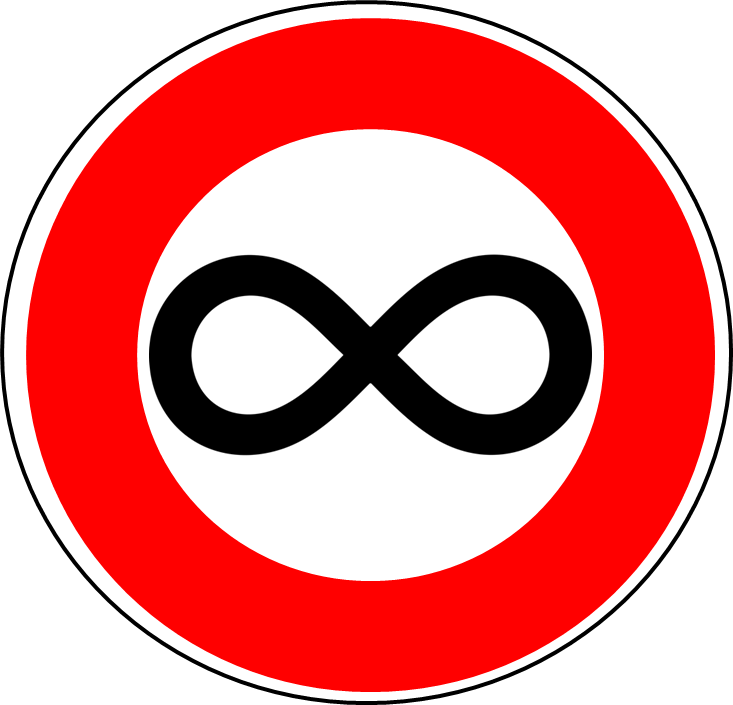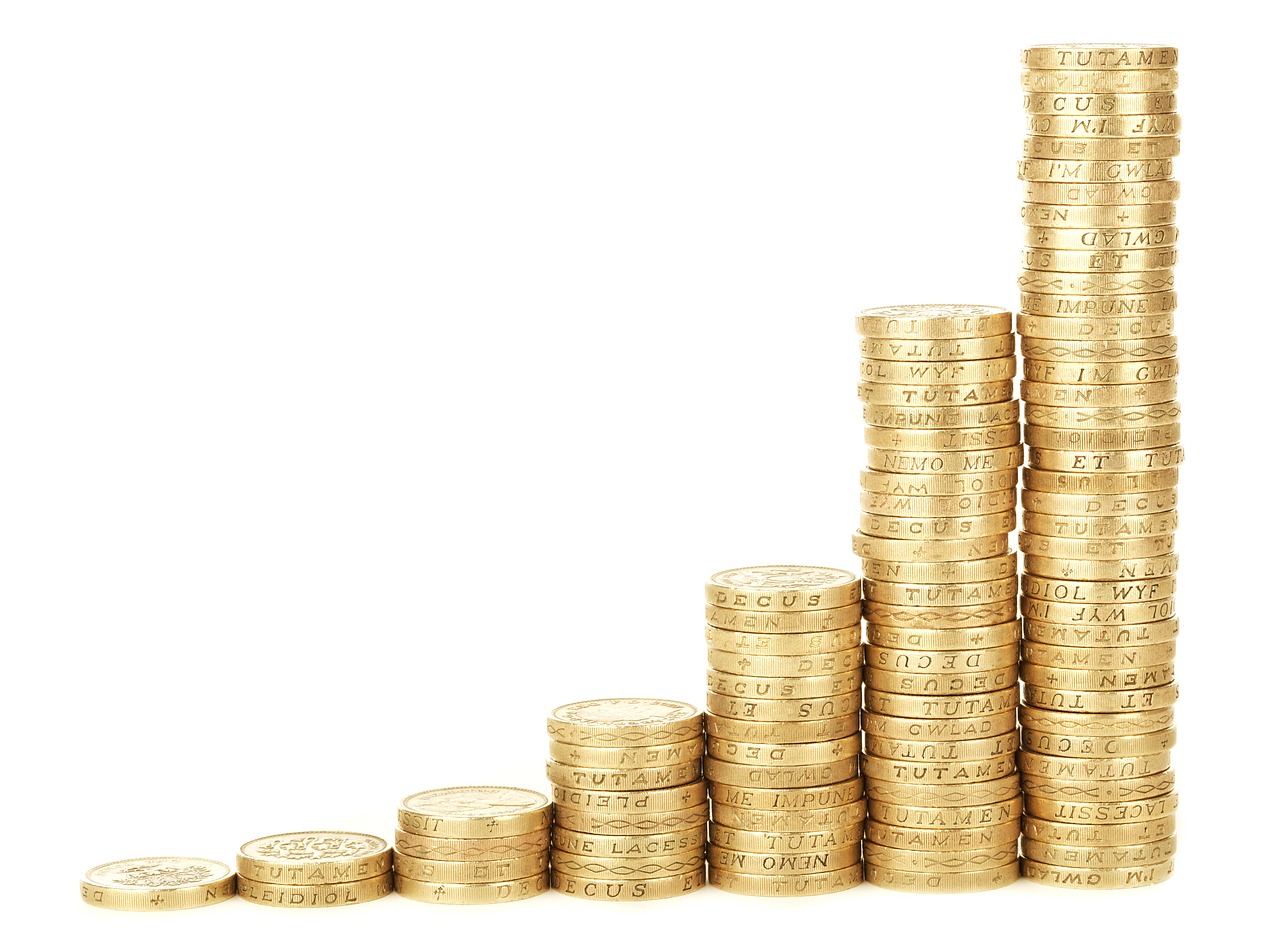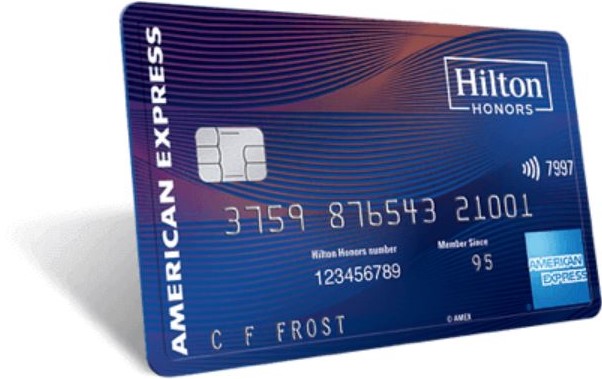NOTICE: This post references card features that have changed, expired, or are not currently available
There are 17 hotel credit cards found on our best offers page. After completing the minimum spending requirements to earn the welcome offer, there is little reason to spend a dime on the vast majority of them. Cash back is quickly becoming a larger and larger part of my miles-and-points strategy, and not just for cash: you can earn more hotel points per dollar spent with a cash back credit card in most instances.
Marriott motivates the post
The latest (but far from only) example as to why it doesn’t make sense to spend money on a hotel credit card is the sale we reported yesterday from Marriott Bonvoy: through October 18th, you can buy Marriott points for just 0.875c per point as long as you buy 2,000 points or more.
Throwing redemption value out the window for a moment, that means that unbonused spend on any of the various Marriott Bonvoy credit cards is earning a maximum of 1.75c per dollar in value (since those 2 point can be purchased via this sale for 1.75 cents). You would be better off using a 2% cash back card. Here’s an example:
- Spend $43,750 on a 2% cash back card, earn $875 back
- Use $875 to buy 100K in Marriott Bonvoy points
- Net return on spend = 2.29 Marriott Bonvoy points per dollar spent
Alternatively:
- Spend $43,750 on a Marriott Bonvoy credit card (on unbonused purchases), earn 2x points (87,500 points)
- Net return on spend = 2 Marriott Bonvoy points per dollar spent
In short, you would be able to accumulate more Marriott points with your cash back card than you would by spending the same amount of money on a Marriott credit card. Keep in mind that the above numbers are for easy math: this particular sale starts at buying 2,000 points for $17.50, so you’re better off with cash back even if you’re not going to buy the full 100K in Marriott points (and that’s without considering the fact that your cash is more flexible than Marriott points). Assuming you take the cash as a check and then use your credit card to purchase the points, you’ll furthermore earn 2% back when buying the points ($17.50 on $875) — enough cash back to potentially buy 2,000 more points.
But there’s a cap on purchased points
One argument you may have as to why the cash back strategy isn’t always better is that Marriott has an annual cap on purchased points. They ordinarily cap you out at 50K points purchased annually. With this sale, they have lifted the annual max to 100K purchased points. That might seem like a limiting factor if you’re planning a couple of big redemptions.
However, keep in mind that Marriott allows any member to transfer up to 100K points per year to any other Marriott member (note that there is no requirement to live at the same billing address — you can literally transfer to anyone whose Marriott Bonvoy account has been open and in good standing for at least 60 days). See our Marriott Bonvoy Complete Guide for more.
Furthermore, an individual can receive up to 500K points per year from other members. In other words, you could buy 100K and have 5 family members buy 100K each and pool all of the points in one person’s account for a total of 600K Marriott points via this promotion. I’m not recommending anyone actually do that; the point here is just that the true cap is a lot higher than it looks. Chances are good that you can buy at least as many Marriott points as you would have ever considered earning via spend on a Marriott credit card (for the record, 600K Marriott points would require $262,500 in spend at 2% back versus $300,000 in spend on a Marriott credit card).
Effectively, the cap isn’t much of a cap.
Doing better than 2% back
Of course, there are a number of ways to earn more than 2% back on purchases that don’t spark a category bonus:
- The Discover IT Miles card earns an effective 3% back in the first year thanks to Discover’s cash back match program
- The Alliant Cashback Visa earns 3% back the first year and 2.5% back in subsequent years (though the annual fee has increased to $99, waived the first year)
- The Bank of America Premium Rewards card with Platinum Honors (note: requires $100K in cash/investments with BOA/Merrill Lynch) earns 2.62% back everywhere ongoing
Those aren’t the only options to earn better than 2%, but they represent the best uncapped options.
If you were to earn at least 2.62% back everywhere, you’d be earning an effective three Marriott points per dollar if you used that cash back to buy Marriott points during this sale.
- Spend $33,333 at 2.62% cash back, earn $875 cash back
- Use $875 to buy 100K Marriott points
- Net return on spend = 3 Marriott Bonvoy points per dollar
Your net return on spend is 3 Marriott points per dollar: roughly equal to the return on the old SPG card. Many have pined for the days of using that card to generate Marriott points quickly; in my opinion, the BOA Premium Rewards card is even more appealing than the old SPG card since it is accepted in places where you won’t earn points with Amex. Of course, earning 2.62% back everywhere requires you to be able to park $100K in assets with Bank of America / Merrill Lynch. That won’t apply to everyone.
However, if you can instead score 3% back via the Discover IT MIles or Alliant Cashback cards, you’ll need even less spend to generate the cash back for 100K Marriott points.
- Spend $29,166 at 3% back, earn $875 cash back
- Use $875 to buy 100K Marriott points
- Net return on spend = 3.43 Marriott Bonvoy points per dollar
That’s a solid return that far out-earns the Marriott credit cards for unbonused spend.
The same is true with Choice, Hilton, and IHG
Point sales come and go with all of the major chains. Here are comparisons with each of them:
Choice Privileges
Through 11:59pm tonight (that’s September 17, 2019), you can get 30% off on the purchase of Choice Privileges points when you buy 5,000 points or more. That means you can buy points for just 0.77c per point. The Choice Privileges Visa Signature card earns 2x everywhere, but you’ll earn more with a cash back card:
- At 2% cash back, earn an effective 2.59 Choice Privileges points per dollar
- At 2.62% cash back, earn an effective 3.4 Choice Privileges points per dollar
- At 3% cash back, earn an effective 3.9 Choice Privileges points per dollar
Hilton Honors
Through October 22nd, you can buy Hilton points with a 100% bonus when you buy 10K points or more, which brings the cost down to 0.5c each. The base (unbonused) earn rate on the various Hilton credit cards is 3x. Using a cash back credit card:
- At 2% cash back, earn an effective 4 Hilton Honors points per dollar
- At 2.62% cash back, earn an effective 5.24 Hilton Honors points per dollar
- At 3% cash back, earn an effective 6 Hilton Honors points per dollar
As you can see, the return with cash back can equal many of the category bonuses on the Hilton credit cards in terms of the number of net points earned per dollar if you can take advantage of a sale like the current one.
IHG Rewards
Until September 24th, 2019, you can buy IHG Rewards Club points with a 100% bonus when you buy 7K or more, which brings the cost down to 0.5c each. The base (unbonused) return on the IHG Rewards Premier credit card is 1x. Using a cash back credit card:
- At 2% cash back, earn an effective 4 IHG Rewards points per dollar
- At 2.62% cash back, earn an effective 5.24 IHG Rewards points per dollar
- At 3% cash back, earn an effective 6 IHG Rewards points per dollar
Note that you might do even better. We recently reported on a (now dead) opportunity to buy IHG points for just 0.384 cents per point. If an opportunity like that returns, using a cash back credit card:
- At 2% cash back, earn an effective 5.2 IHG Rewards points per dollar
- At 2.62% cash back, earn an effective 6.8 IHG Rewards points per dollar
- At 3% cash back, earn an effective 7.8 IHG Rewards points per dollar.
The above assumes you buy at the right time
The other key argument against the logic above is that my numbers assume you buy at the perfect time: when points are on sale. It’s true: I am making the assumption that you buy when points are on sale, both because that’s the smart way to play this and because hotel point sales are so frequent.
Furthermore, unlike airline mile sales, which often require you to purchase large sums of miles in order to get the best value, hotel point sales often allow for the headline rate even on relatively small purchases. In fact, while writing this post, I bought 6,000 Choice Privileges points just so I wouldn’t repeat this mistake again.
Additionally, I’d argue that earning cash back instead of hotel points gives you the flexibility to be free to buy hotel points in all of the above programs with spend on a single credit card, which adds value in the ability to cherry pick redemptions / good sale prices for points. You can diversify your hotel point collection with a single credit card.
What about big spend bonuses?
One thing completely ignored in the above analysis is the benefit of big spend bonuses. Many hotel credit cards offer some sort of free night certificate based on big spend. If you know you are going to reach a valuable big spend bonus on a particular hotel credit card, it may be worth spending on that card (particularly in bonus categories).
Particularly, one credit card thus far ignored by this post (but which you should not ignore) is the World of Hyatt credit card. This is the one hotel credit card on the market that I’d argue is worth using for unbonused spend specifically for its big spend bonuses. This card earns 2 elite qualifying nights with each $5K in spend on the card. Additionally, you’ll earn a free Category 1-4 night after spending $15K in your cardmember year. In other words, $15K spend on this card will earn you 15,000 World of Hyatt points (at 1x), 6 elite qualifying nights, and 1 free Category 1-4 nights. I think that’s worth more than the alternative $450 you could earn at 3% on $15K spend.
Free night certificates earned on the Hilton or Radisson cards can also be worth it in the right circumstances. Keep in mind though that with the right cash back cards, you can earn as much as 5% back in many different categories (like 5% back at the Grocery store or 5.25% back on gas), which would create even more points per dollar spent.
Take the Hilton Honors American Express Surpass card for example. That card earns 6x at US Supermarkets and earns a free weekend night certificate after spending $15,000 dollars in a calendar year. If you spent the entire $15,000 at 6x, you would earn a free weekend night and 90,000 Hilton Honors points. If you instead put $15,000 in spend on a card that earns 5% cash back at those same stores, you would earn $750 — enough to buy 150,000 Hilton Honors points in the current sale. Whether you would rather have a free weekend night certificate and 90K points or 150K points is a matter of personal preference. I could make arguments either way: my point here is that it’s not a clear-cut decision even when cherry picking a good category bonus and big spend bonus.
Bottom line
I love miles and points. This year alone, I’ve redeemed north of 1 million hotel points. Many (likely more than half) of those points were earned via credit card welcome bonuses. Another chunk were earned through MS. A growing number are being purchased with cash thanks to carrying cash back credit cards to complement miles and points. Those cash back credit cards earn an effective return that out-shines traditional hotel credit cards and adds the flexibility to be a free agent in terms of which chain’s points I’d like to purchase when the time is right. With a number of point sales currently on, the time may be now to put cash back to use via hotel points – though if you’re not in the market for a hotel stay right now, it may be wiser to hold your cash back to maintain ultimate flexibility. Either way, it’s worth collecting cash back for your hotel stays.










I totally agree with you that it’s not worth it to earn hotel points when compared to 2% cashback. Often times, bloggers like to compare points required to rack rates or rates booked far in advance of specific hotels. In reality, I think the point redemption should be compared to last-minute Hotwire/Price rates, which also gives you more flexibility. I am not saying that hotel points are totally worthless, but in most cases I think it’s not worth as much as they seem. (unless it’s like NYE in NYC type of redemption)
I know the travel packages don’t represent great value like they did in the past, but I’ll have about 230,000 Marriott points pretty soon (after a bonvoy brilliant retention offer) and I’m contemplating paying the $875 to top off the account for a Cat 1-4 + 110k United mile certificate. Talk me out of it or tell me it’s good value. One reason to not do it would be to downgrade the amex card, and eventually hope for a 100k upgrade offer back to the brillant.
[…] noted in this morning’s post (see: Why it’s not worth earning (most) hotel points), Choice Privileges points are on sale for 30% off (i.e. buy points for 0.77c per point) through […]
“If you instead put $15,000 in spend on a card that earns 5% cash back at those same stores, you would earn $750 — enough to buy 150,000 Hilton Honors points in the current sale.”
Always love your posts, but this line struck me a bit odd. I mean, how many of us have a 5% cashback card that allows for $15,000 spend? Freedom and Discover 5% bonus spend quarters max out at $1500. An Ink Plus is a 5 UR card, but those aren’t issued anymore, and anyway no one cashes that out for 5%. The Altitude card with mobile pay can be 4.5% but would probably shut you down if you MS’d that $15k. So, I guess I’m just saying, I don’t know how you have a person being able to make that choice to do 5% on your $15,000 instead of using the Surpass.
Combine the Amex Gold card with the Amex Platinum Schwab.
There you can “cash out” MR points for 1.25 cents per point, with the Gold card earning 4 MR points on grocery and restaurants for every $ spend = 5%.
That’s why I included a link to our Best Category Bonuses page. Here’s a direct link to the cars earning the best return at US Supermarkets:
https://frequentmiler.com/best-category-bonuses/#Grocery
Enrico makes one option clear with the Amex Gold / Schwab Platinum combo.
You’ll see on that page that there are 2 different Wells Fargo cards that offer 5% back at grocery stores on up to $12,500 in the first 6 months. Playing in 2-player mode, that’s $25K per year at 5% back for 2 years if you rotate the four cards between the two of you — or do one card per year over the next 4 years and get 5% back on *almost* $15K each year assuming you don’t have any of the other options below.
The EDP with 30 transactions per month earns 4.5x on the first $6K in US Supermarket spend, which can be cashed out via the Schwab Platinum as noted above for an effective return of 5.625%.
The BCP earns 6% back on up to $6K in groceries.
Those with the “Old” Blue Cash card could be earning 5% back (there are some hoops to jump through there).
Those with the Amazon Business Amex earn 5% back at Whole Foods.
That’s of course ignoring the times when Freedom and Discover offer 5% back because of the low caps (and that those in the first year of a Discover IT card will earn 10% back on that $1500).
I’m not saying you’re wrong to use the Surpass — like I said, I think an argument could be made either way. I just don’t think the Surpass is a clear winner there as there are some other good options out there.
Just add, I’d say that the surpass and Hilton business are at least worth spending the $15k (bonus categories) in year one since you’re already spending $3k-$5k for the sign up bonus. I agree with you though that year two isn’t as clear regarding the 90k+free night vs $750 cash.
I guess I understand these examples, although they are all much more complex than the sentence above about spending $15k at 5% suggested. I guess I was reading you, shall we say, literally.
I also think there’s a big difference between the $95 AF Surpass cost for that $15k spend and the $800 combined AF cost on the Amex Gold and Schwab Plat.
I’ll also admit that none of this means bupkis to someone who doesn’t have a grocery store selling non-vanilla VGCs… like me.
Had the same thought – what card earns 5% on grocery to at least 15K spend? Enrico mentions the combination of Amex gold and schwab plat – is that what Nick had in mind? Those cards have high and very high annual fees, and isn’t conversion to cash generally not the best use of MRs? (Maybe wouldn’t matter if you could earn an unlimited 4X at grocery on the gold, but with the 25K annual cap, many will not want to use their MRs that way.) I agree generally with this article, but I do find the Hilton Surpass useful for generating hotel points (6X grocery at least up to 15K for the free weekend night).
Yeah the annual fees are there with those cards, but with sign-up bonus, retention offers, airline (and uber and saks) credits (I know, getting more difficult to utilize), those cards usually have way better value than their annual fees, at least for the first two years. If you stop getting retention offers, yeah, the math is going to be a bit different than calling that combo a true 5% grocery option.
Thank You, good article.
But I would have started of a bit different in the article or even chosen a different name. That for the untrained miler you know what your are talking about right away.
It is basically, Don’t put any everyday spend on hotel cards, and for some/most, don’t put any non-hotel spend on the hotel card. Of course hotel spend only from the same hotel brand that applies to that card.
Good feedback. Now that I read it again, I think you are right that I could have done better on the title.
Given the strategy you provide and the math behind it, what then is the role and value of using these (cheap) point purchases for MS? Certainly easier to use/liquidate than reselling gift cards or what not. Thoughts/recommendations?
I’m not entirely sure what you’re asking. Are you talking about buying the points as a form of MS? I guess the play then would be to use the points to book hotels for someone else who pays you back? I guess that might work depending on your situation.
Sorry for the confusion — idea being instead of buying gift cards for MS to meet important spend requirements, buying points instead. Comparing both MS options: liquidating the gift cards requires one to either use them or sell them. The liquidation option with the points are easier as you can just burn em up yourself with much less effort. So I had in mind the idea of the buyer just using the points themselves. Again given Greg’s math it seems like that might not be a bad option on top of the benefits he describes.
Sorry Nick, I did not credit you in my last comment—after reading all the comments I lost track! Apologies again, and great article. Thank you
Nick, pretty good takedown of hotel cards! None of.the usual credit card shills (aka travel experts) dare call out the usually-crappy hotel cards. Bonvoy cards are particularly terrible and should have 3x earning rates to make any sense. My once-beloved SPG/bonvoy is getting dumped after vainly waiting for more 3x spend offers to make it worth keeping. Even if I could get the Hyatt card, I doubt I’d bother – Hyatt’s footprint is too small and as years go by, I spend fewer nights at top hotels (prefer upscale BnB).
Only hotel card I MS with is Amex Surpass 6x gas/grocery/drug. Do $40K to earn Diamond, get 2 weekend night certs and 240K points. My best cashback card is 2% and I do as much cashback as I dare, so there is no competition for spend. 6x is worth more than 2% in any event, but the key benefit of spending $40K for Diamond status.
So much math, yet so easily digestible. Thanks for keeping us rational.
Anyone have the Amex Blue Business Cash? I was able to refer my wife for 20k MRs – she gets 2% cash back plus $500 bonus on first 15k spend. So $800 back on 15k or 5.3%. I don’t see this card mentioned much.
Michael, if you read the article, Nick basically said that the Hyatt card is the only one really worth putting spend on. Great article Nick! I basically have two cash back cards along with the Hyatt card and Amex Gold card. Once Hyatt finds away to devalue and join the rest of them, I am completely out of chasing hotel points. Keep up the good work Nick!
Nick, we share a common belief the the Grand Hyatt Kauai is the best resort we’ve visited. It’s also quite pricey. Given that I average between 3X and 5X UR points for Chase spend and given that I like to go to Kauai a few times a year (It gets cold up here in Alaska), earning hotel points for spend can at times represent a great value. I redeemed Hyatt points for a 4-night stay next April at the Park Hyatt Kyoto, where rates for a standard king room are running over $2000/night during that same period. While 7-8 cents/point might not be as great a value as some first class airfare redemptions, it’s nice to do more than just the plane ride for free.
That’s a different story. This post is about earning hotel points using a hotel credit card vs earning cash back and buying those points. Earning transferable points (like Ultimate Rewards) at a higher rate and transferring them for a valuable hotel redemption certainly makes sense to me.
Of course the elephant in the room is whether paying by points winds up a more cost effective strategy than paying cash. When redemptions are at fixed point values that is more often the case than with redemptions in variable pricing schemes or with Hilton-like stratospheric points redemption levels. Hotels compete against each other in cash prices, not points prices, so cash prices may be market competitive while points prices are not. In any case, the current trend in Hotel loyalty programs seems to be to royally Bonvoy the points using loyalty program customer.
Yes, with cash in hand, one needs to consider whether to buy points at all. One reason would be to combine them with your existing point balances and free night certificates.
That’s another reason I should have included for earning cash back for hotels: when points aren’t a good value, you have cash in hand to pay the cash rate and earn hotel points on top.
Even bigger elephant in the room, with cash you can pick ANY hotel that you want. That flexibility makes my money worth at least 20% more. Winning every time I pay cash!
ABC
Location,Location,Location then get ur best deal IF points don’t work .I’ll take the Citi P card+ Hotels.com got 5 nites free out of 18 good enough for a laymen..
CHEERs
Spending on most of these cards in like investing in We Work. Everyone knows they have little value.
I’ll take the annual free night though. (I didn’t take the We Work 1 year credit because they started sending invoices with the charges reversed out and I was worried I’d get a 1099).
I’ve been spending on the Bonvoy business because of the bonus offer and I can transfer to Korean.
Korean has great value because they almost always have first class space given the lack of transfer partners and they fly to/from my home city. I’m often the only person in first.
I don’t think Gary is saying the cards are not worth having for the free night. Right? Or have made the night so difficult to use it’s irrelevant?
I meant Nick, not Gary. They look so much alike I confuse them
How about using Bank of America Cash Rewards 3% cash back if choosing the online shopping category, will this transaction count towards 3% cash back? If this a good deal to buy 100,000 points and to Alaska Air under this promotion
100,000 points = $875 for 38,333 miles = 2.28cpp
With 3% cash back: $848.75 for 38,333 miles = 2.21cpp
With 1.5X @ 1.5cpp: $855.31 for 38,333 miles = 2.23cpp
The difference is so small, I’d just use whatever card reliably* earns the most. It seems Chase cards earn the base rate (1-1.5X) on most anything, so I’d call those “reliable.”
Or you could be the DP
*You’re sure you get the points/cash, and there’s minimal/zero chance of a clawback or eyes on the account.
If you got the 75 percent bonus AND it counted as online shopping, you would be maximizing your cash back. I would try a small test purchase to see how it codes. But that’s a different question than whether buying 100k Alaska miles is a good deal. I would not buy Alaska miles with any credit card at 2 cents per unless I had a good redemption in mind or I had a stash of Alaska miles I otherwise earned by flying.